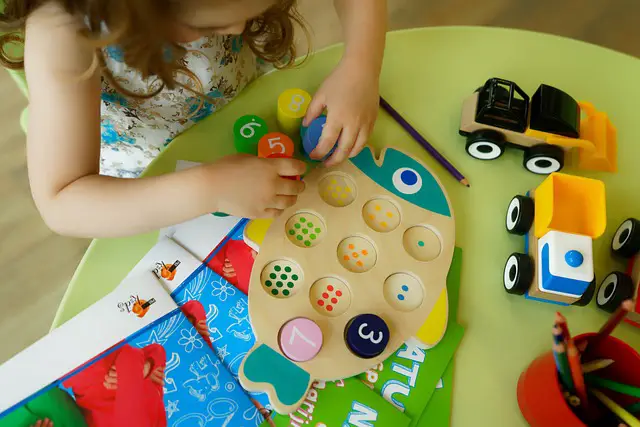
What Age Do Kids Start Preschool?
If you’re wondering what age do kids start preschool, don’t stress. Look into this article to learn about the appropriate age for your child to begin school, beginning with preschool.
What constitutes preschool readiness?
You should look for certain early signals in your kid to determine if they are ready for preschool. You must go beyond academic talents and monitor your child’s behavior, such as their ability to follow directions. Do they show any interest in engaging with other children? Can they express themselves verbally? Can they cope with being separated from you? These are some early indicators that your child is ready or not to begin preschool.
When should I begin working on preschool readiness?
Working on your child’s preschool preparation is a lot simpler because you spend the majority of your time with them, making you their first instructor before they attend any other preschool group. To teach your child certain skills that will help them prepare for preschool, you should do the following: Teach children independence and social skills at a young age and encourage them to participate in activities that promote sharing and taking turns, as well as reading books together to improve their language abilities. But you must be alert and patient with them and not force them or attempt to expedite the process because every child is unique in their way.
What is taught in preschool?
You may believe that preschool is only about the ABCs and 123s, but you are incorrect; preschool includes and instills more in your child that will serve as the foundation for their everyday existence. Have you ever considered that learning may be attained via play? Preschool encourages learning via play, exploration, and hands-on activities. It does not stop there. Be certain that your child will learn important social skills like sharing, teamwork, and empathy. Their language and literacy skills will also be developed via storytelling and exposure to written language. Math will also be presented to them through games, while arts and music will let kids express themselves creatively and freely. Isn’t this exposure and learning a lifetime foundation for your little one?
The Benefits of Preschool
When you enroll your kid in preschool, you should expect to reap some significant benefits that will help lay the groundwork for your child’s future success. Let’s take a look at some of the perks they’re going to enjoy:
1. Preschool: The First Steps to Following Directions
To get started, your child will enter preschool with their head held high, ready to face the world and emerge triumphant because it is more than simply ABCs and 123s. Preschool will undoubtedly help your children develop the important ability to follow directions via various group activities and line up to get their breakfast or lunch. Every preschool activity your child participates in is designed to encourage this important skill; what better way to establish a solid foundation for your child’s listening and learning abilities?
2. Smooth Transition into Kindergarten
What can preschool do to help my baby? Then here’s the answer: preschool helps your child transition smoothly into kindergarten. I’m sure you’re asking how; let me explain: Preschool provides your child with social skills and intellectual preparedness that will allow them to enter kindergarten with confidence. Who doesn’t want this for their children?
3. Components of Social and Emotional Development
Preschool offers lots to offer your child, from social contact to emotional development. Your child will learn the act of dispute resolution, empathy, collaboration, and resilience in a nurturing environment. Preschool education is much more than simply academics. It is about building the groundwork for them to thrive in their future endeavors.
4. The Budget-Friendly Option
Public Preschool Schooling can be costly, but publicly sponsored preschool programs offer outstanding instruction at a low or free cost.
5. Playtime Galore, the Heart of Preschool
Preschool ensures that learning is enjoyable; playing is an important technique in preschool education, from exploration to discovery. Children participate in building blocks, dress-up zones, and other activities that encourage their creativity and imagination. They believe they’re just playing, but they’re actually learning and developing problem-solving abilities. Isn’t it amazing?
Preschool allows your child to discover his or her interests and dislikes, as well as to chart a course for a successful life.